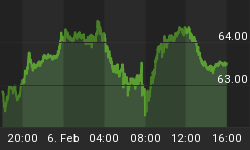Financial distress continued through the weekend, which inspired policymakers to heroic, but nevertheless orthodox remedies. The notion that some philosopher-king and his committee can prevent or defer the severe credit contraction that follows every great financial mania has been around for centuries. When the Bank of England was formed in 1694, the original promoters claimed that it would "infallibly" lower interest rates and all would be well. But great booms and busts continued to happen, with usually a couple of outstanding asset inflations brewing up each century.
The latest is now sinking to new depths and the implications are profound. At the peak of any boom, participants all assume that endless amounts of leverage can be employed with little concern for risk. Then, when the play becomes exhausted the most aggressive positions get wiped out, and the liquidation of unsupportable positions can go on for a few years.
This time around, what will be soon seen as a school of radical economics became convinced that arbitrary manipulations of interest rates and currencies would keep even the most outrageous abuse of credit going forever, or at least as far as the foreseeable future extends.
That has been standard and continuous practice at the Fed over a number of generations of interventionist economists. Then, over the past 25 years legions of financial adventures created enormous amounts of artificial securities, artificially priced and backed by artificial credit ratings.
Anyone who had spent any time watching the old and notorious Vancouver Stock Exchange would know that the public will believe the most preposterous story – so long as the price is going up. Then with the inevitable plunge belief disappears in an instant, leaving chagrin and dismay.
The key to the reversal is the decline in price, which places decision-making powers in the hands of margin clerks, whose job description is to get the accounts in line. It seems that the job description of ambitious central bankers has been to get the accounts out of line. In so many words, the putative elimination of risk by central planners created the riskiest credit structure in history.
Also, because politics will soon rear its ugly head it is worth emphasizing that interventionist economists have been employed by all political parties from the left to the not-so-left, all governments, all trade unions, and all big corporations as well as financial institutions and investment dealers.
Markets have been distorted to an unprecedented degree.
Our research indicated that the change in the credit markets towards adversity would likely be accomplished by June, last year. In July the reversal was sufficient to conclude that "The biggest train wreck in the history of credit had begun." Although severe lately, it is not over.
Showing how quickly conditions are changing, The Wall Street Journal headlined in Friday morning's edition "Some Traders Take Bullish Tack in Bear Stearns".
Another weekend comment was from a professor at The London School of Economics, and was on the nature of the Fed's bailout plan: "Throwing out four decades of monetary history". This meant that the Fed was taking on riskier securities that he described as "Socialism for the rich, which is both inefficient and objectionable."
Once again, the baton of monetary power has been forcefully transferred, from central bankers to margin clerks, and in due course the LSE professor will discover that post-bubble contractions are very democratic.
So long as credit was expanding, market participants and central bankers could earnestly believe in any number of preposterous stories.
Credit is in a vicious contraction and so is the biggest secular belief system in history.
















